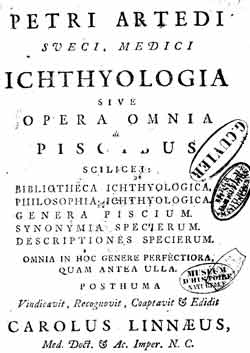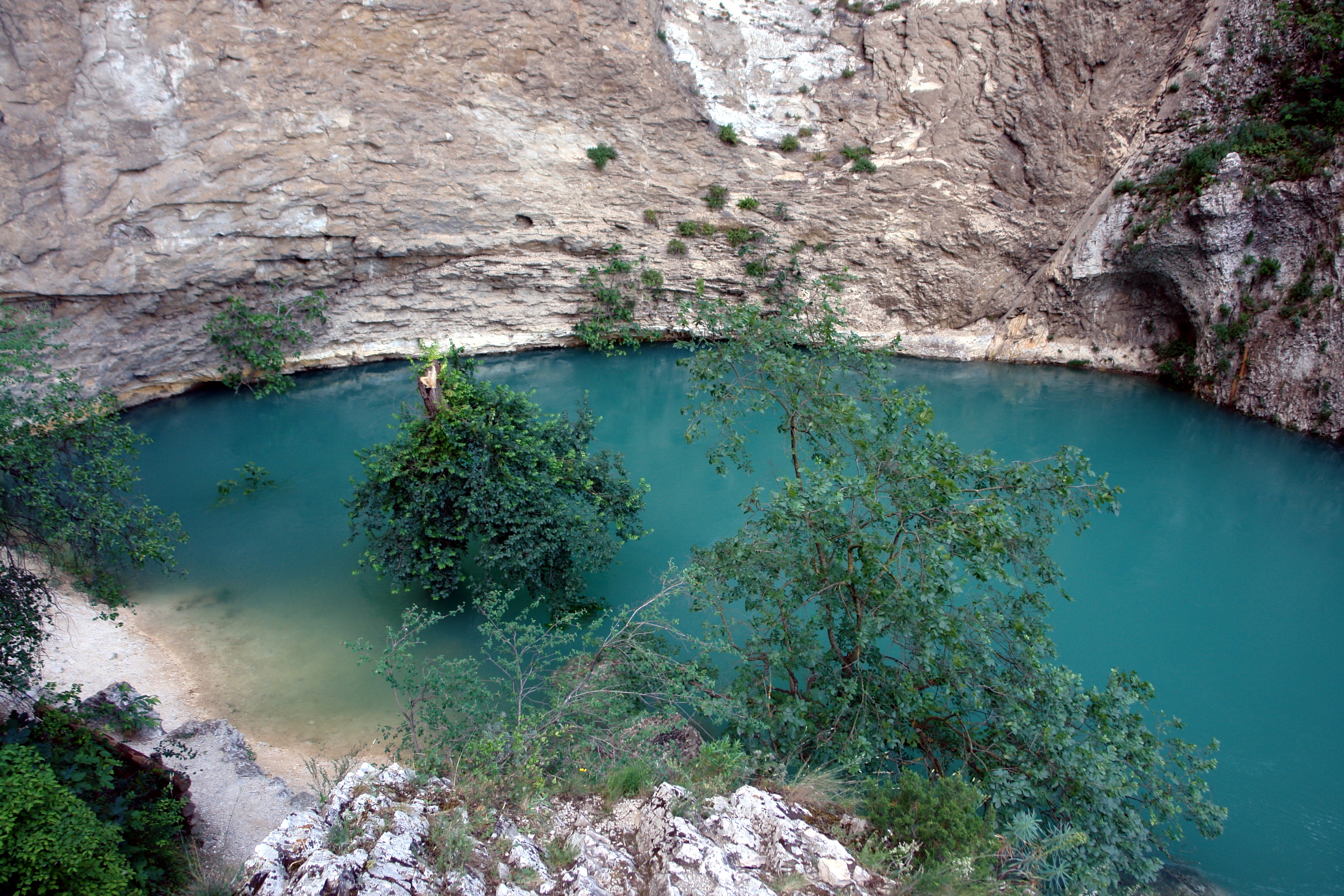|
Guillaume Rondelet
Guillaume Rondelet (27 September 150730 July 1566), also known as Rondeletus/Rondeletius, was Regius professor of medicine at the University of Montpellier in southern France and Chancellor of the University between 1556 and his death in 1566. He achieved renown as an anatomist and a naturalist with a particular interest in botany and ichthyology. His major work was a lengthy treatise on marine animals, which took two years to write and became a standard reference work for about a century afterwards, but his lasting impact lay in his education of a roster of star pupils who became leading figures in the world of late-16th century science. Early life and education Rondelet was born in Montpellier in 1507. His father was an , a combination of pharmacist, grocer and druggist. His father died while he was a child and he was brought up in the care of his elder brother.Planchon, J.É. (1866): 11 His health was poor until he reached the age of 18. He was educated in Montpellier and was ... [...More Info...] [...Related Items...] OR: [Wikipedia] [Google] [Baidu] |
Montpellier
Montpellier (, , ; oc, Montpelhièr ) is a city in southern France near the Mediterranean Sea. One of the largest urban centres in the region of Occitania (administrative region), Occitania, Montpellier is the prefecture of the Departments of France, department of Hérault. In 2018, 290,053 people lived in the city, while its Functional area (France), metropolitan area had a population of 787,705.Comparateur de territoire INSEE, retrieved 20 June 2022. The inhabitants are called Montpelliérains. In the Middle Ages, Montpellier was an important city of the Crown of Aragon (and was the birthplace of James I of Aragon, James I), and then of Kingdom of Majorca, Majorca, before its sale to France in 1349. Established in 1220, the University of Montpellier is one of the List of oldest univ ... [...More Info...] [...Related Items...] OR: [Wikipedia] [Google] [Baidu] |
Ichthyology
Ichthyology is the branch of zoology devoted to the study of fish, including bony fish ( Osteichthyes), cartilaginous fish (Chondrichthyes), and jawless fish ( Agnatha). According to FishBase, 33,400 species of fish had been described as of October 2016, with approximately 250 new species described each year. Etymology The word is derived from the Greek words ἰχθύς, ''ikhthus'', meaning "fish"; and λογία, ''logia'', meaning "to study". History The study of fish dates from the Upper Paleolithic Revolution (with the advent of "high culture"). The science of ichthyology was developed in several interconnecting epochs, each with various significant advancements. The study of fish receives its origins from humans' desire to feed, clothe, and equip themselves with useful implements. According to Michael Barton, a prominent ichthyologist and professor at Centre College, "the earliest ichthyologists were '' hunters and gatherers'' who had learned how to obtain the most ... [...More Info...] [...Related Items...] OR: [Wikipedia] [Google] [Baidu] |
Rondelet - De Piscibus
The rondelet is a brief French form of poetry. It contains a refrain, a strict rhyme scheme and a distinct meter pattern. The roundelay is a 24 line poem written in trochaic tetrameter. What they have in common is that they both only use two rhyme sounds, and make use of refrains. Rondelet is the diminutive of rondel, a similar, longer verse form. This is the basic structure: * Line 1: A—four syllables * Line 2: b—eight syllables * Line 3: A—repeat of line one * Line 4: a—eight syllables * Line 5: b—eight syllables * Line 6: b—eight syllables * Line 7: A—repeat of line one The refrained lines should contain the same words, however substitution or different use of punctuation on the lines has been common. Etymology The term roundelay originates from 1570, from Modern French rondelet, a diminutive of rondel meaning "short poem with a refrain," literally "small circle". From Old French Old French (, , ; Modern French: ) was the language spoken in most of the n ... [...More Info...] [...Related Items...] OR: [Wikipedia] [Google] [Baidu] |
Plague (disease)
Plague is an infectious disease caused by the bacterium ''Yersinia pestis ''Yersinia pestis'' (''Y. pestis''; formerly '' Pasteurella pestis'') is a gram-negative, non-motile, coccobacillus bacterium without spores that is related to both '' Yersinia pseudotuberculosis'' and '' Yersinia enterocolitica''. It is a facu ...''. Symptoms include fever, weakness and headache. Usually this begins one to seven days after exposure. There are three forms of plague, each affecting a different part of the body and causing associated symptoms. Pneumonic plague infects the lungs, causing shortness of breath, coughing and chest pain; bubonic plague affects the lymph nodes, making them swell; and septicemic plague infects the blood and can cause tissues to necrosis, turn black and die. The bubonic and septicemic forms are generally spread by flea bites or handling an infected animal, whereas pneumonic plague is generally spread between people Airborne disease, through the air via infectio ... [...More Info...] [...Related Items...] OR: [Wikipedia] [Google] [Baidu] |
Auvergne (province)
The history of the Auvergne dates back to the early Middle Ages, when it was a historic province in south central France. It was originally the feudal domain of the Counts of Auvergne. History Auvergne was a province of France deriving its name from the ''Arverni'', a Gallic tribe who once occupied the area, well known for its fierce resistance, led by Vercingetorix, to conquest by Julius Caesar and the late Roman Republic. Christianized by Saint Austremoine, Auvergne was quite prosperous during the Roman period. After a short time under the Visigoths, it was conquered by the Franks in 507. During the earlier medieval period, Auvergne was a county within the duchy of Aquitaine and from time to time part of the " Angevin Empire". In 1225, Louis VIII of France granted Poitou and Auvergne to his third son Alfonso.Elizabeth M. Hallam, ''Capetian France: 987–1328'', London: Longman, 1980, p. 248. On Alfonso's death in 1271, Auvergne, along with the County of Toulous ... [...More Info...] [...Related Items...] OR: [Wikipedia] [Google] [Baidu] |
Maringues
Maringues (; oc, Maringas) is a commune in the Puy-de-Dôme department in Auvergne-Rhône-Alpes in central France. Population See also *Communes of the Puy-de-Dôme department The following is a list of the 464 communes of the Puy-de-Dôme department of France. Intercommunalities The communes cooperate in the following intercommunalities (as of 2020):Communes of Puy-de-Dôme {{PuyDôme-geo-stub ... [...More Info...] [...Related Items...] OR: [Wikipedia] [Google] [Baidu] |
Greek Language
Greek ( el, label= Modern Greek, Ελληνικά, Elliniká, ; grc, Ἑλληνική, Hellēnikḗ) is an independent branch of the Indo-European family of languages, native to Greece, Cyprus, southern Italy (Calabria and Salento), southern Albania, and other regions of the Balkans, the Black Sea coast, Asia Minor, and the Eastern Mediterranean. It has the longest documented history of any Indo-European language, spanning at least 3,400 years of written records. Its writing system is the Greek alphabet, which has been used for approximately 2,800 years; previously, Greek was recorded in writing systems such as Linear B and the Cypriot syllabary. The alphabet arose from the Phoenician script and was in turn the basis of the Latin, Cyrillic, Armenian, Coptic, Gothic, and many other writing systems. The Greek language holds a very important place in the history of the Western world. Beginning with the epics of Homer, ancient Greek literature includes many works of l ... [...More Info...] [...Related Items...] OR: [Wikipedia] [Google] [Baidu] |
Vaucluse
Vaucluse (; oc, Vauclusa, label=Provençal or ) is a department in the southeastern French region of Provence-Alpes-Côte d'Azur. It had a population of 561,469 as of 2019.Populations légales 2019: 84 Vaucluse INSEE The department's prefecture is . It is named after a spring, the Fontaine de Vaucluse, one of the largest karst springs in the world. The nam ... [...More Info...] [...Related Items...] OR: [Wikipedia] [Google] [Baidu] |
Pertuis
Pertuis (; oc, Pertús) is a commune in the Vaucluse department in the Provence-Alpes-Côte d'Azur region in southeastern France. Located south of the Luberon, this town is also near Aix-en-Provence, a famous town. Pertuis has existed since at least 981, while a castle was first built in the 12th century. Population Pertuis has registered significant population growth since the 1960s, with a threefold increase during this period. International relations Pertuis is twinned with: * Alton, Hampshire, England * Herborn, Hesse, Germany * Este, Veneto, Italy * Utiel, Spain Notable people from Pertuis * Henry de Saint Didier (16th century), fencer and author of the first French book on fencing (1573) * Victor de Riqueti, marquis de Mirabeau (1715–1789), economist * Michèle Torr (1947-), singer * Cyril Rool (1975-), footballer * Malick Bowens (1941-2017), actor Gallery File:Église Saint-Nicolas de Pertuis, Vaucluse, France - 20090509.jpg, Église Saint-Nicolas See a ... [...More Info...] [...Related Items...] OR: [Wikipedia] [Google] [Baidu] |
Apothecary
''Apothecary'' () is a mostly archaic term for a medical professional who formulates and dispenses '' materia medica'' (medicine) to physicians, surgeons, and patients. The modern chemist (British English) or pharmacist (British and North American English) now perform this role. In some languages and regions, the word "apothecary" is still used to refer to a retail pharmacy or a pharmacist who owns one. Apothecaries' investigation of herbal and chemical ingredients was a precursor to the modern sciences of chemistry and pharmacology. In addition to dispensing herbs and medicine, apothecaries offered general medical advice and a range of services that are now performed by other specialist practitioners, such as surgeons and obstetricians. Apothecary shops sold ingredients and the medicines they prepared wholesale to other medical practitioners, as well as dispensing them to patients. In 17th-century England, they also controlled the trade in tobacco which was imported as a ... [...More Info...] [...Related Items...] OR: [Wikipedia] [Google] [Baidu] |
Nostradamus
Michel de Nostredame (December 1503 – July 1566), usually Latinised as Nostradamus, was a French astrologer, apothecary, physician, and reputed seer, who is best known for his book '' Les Prophéties'' (published in 1555), a collection of 942 poetic quatrains allegedly predicting future events. Nostradamus's father's family had originally been Jewish, but had converted to Catholic Christianity a generation before Nostradamus was born. He studied at the University of Avignon, but was forced to leave after just over a year when the university closed due to an outbreak of the plague. He worked as an apothecary for several years before entering the University of Montpellier, hoping to earn a doctorate, but was almost immediately expelled after his work as an apothecary (a manual trade forbidden by university statutes) was discovered. He first married in 1531, but his wife and two children died in 1534 during another plague outbreak. He fought alongside doctors against the ... [...More Info...] [...Related Items...] OR: [Wikipedia] [Google] [Baidu] |







